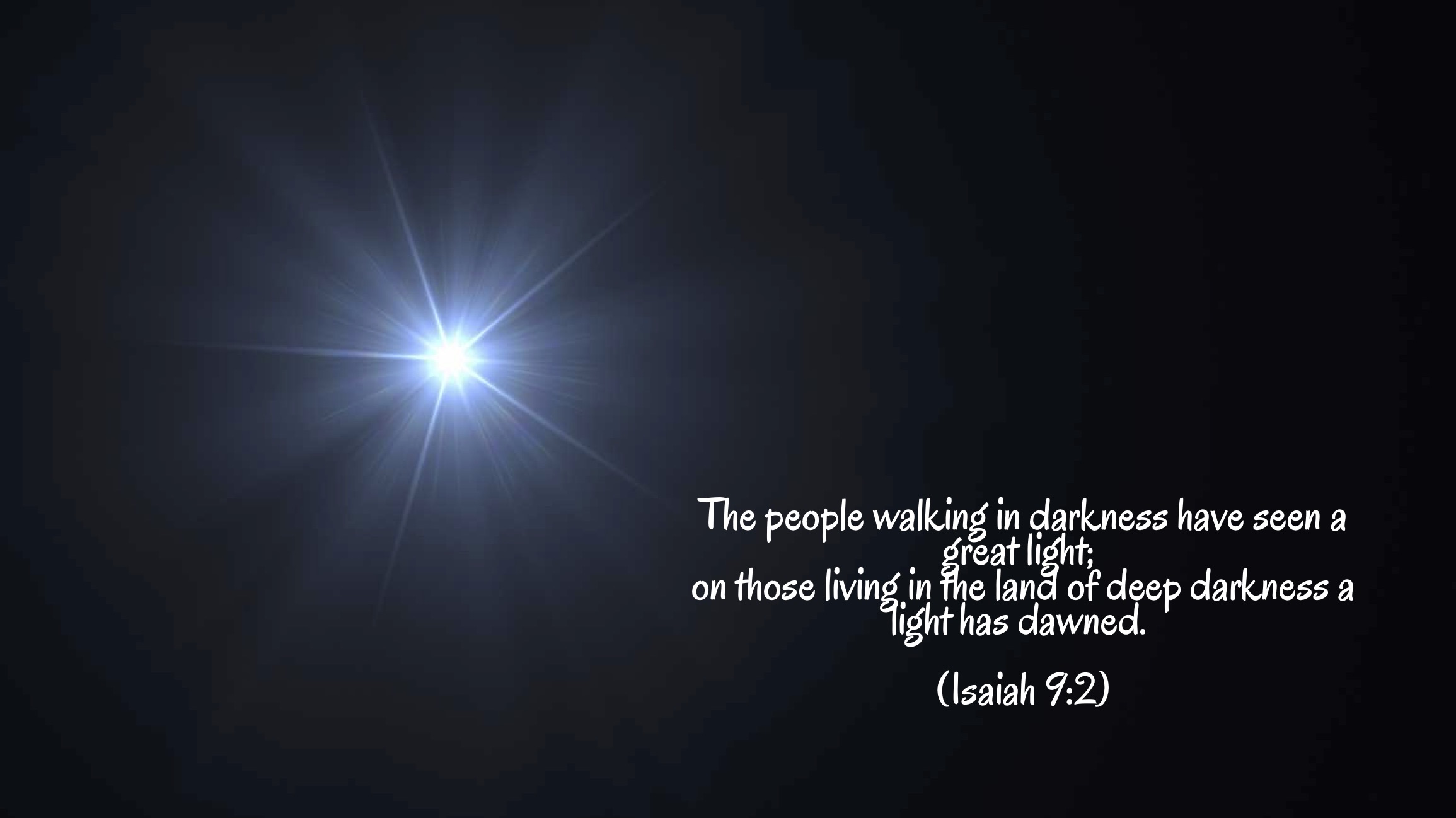The Light in our darkness

Covid has near crushed the world this year. The virus has killed hundreds of thousands and maimed many among those who recovered after gasping for breath in intensive care units of hard-pressed hospitals. The fear of infection, the uncertainty, and largely ignorance of the malaise, and the unpreparedness of governments has aggravated the crisis. The loss has been personal in possible every extended family, or circle of friends and colleagues. The psychological stress on individuals these nine months is yet to be fully comprehended. We have never been so alone as now, in restrictions imposed by disease, by government diktat, and by suspicion of each other fanned by hysteric media. Families have been sundered in curfews and municipal barricades. The internet cannot take the place of the human touch, the embrace of a parent, the kiss of a child.
The world stands disrupted and broken by other problems as well. Racism, casteism, trafficking, pollution, inequality, environmental damage, etc. are global challenges that we continue to deal with. They flourish as some anaerobic microbe that thrives in an environment without the oxygen that gives life to others.
Social and political discourse has turned vitriolic in many parts of the world, including in our own country, polarising people like never before. Families, friends, and communities stand divided because of the political leaders, causes, or ideologies they support. Politics, it seems, has become the means to separate and isolate us rather than bring us together.
Justice mocks itself. The rich and the powerful escape their just deserts, and the poor, the selfless who have spent their lives upholding the cause of the marginalized and the weak, are denied a water-sipper for their quivering hands. Equality, justice, and fraternity are now crimes, and those who seek them are in jail. Hatemongers are promoted in public life. The State joins the criminals in the targeting of communities, religions, and ethnicities. Even love is now taboo, it seems. Every new law criminalises good and once lawful things and opens them to be attacked by non-state actors.
The national economy lies wrecked, and not just by the pandemic but because of arbitrary policies that were not thought through; unemployment and underemployment have multiplied and a large section of the population i.e., the farmers, our food providers, struggle against hurried and controversial laws that are imposed without proper input or discussions with the stakeholders.
We watch institutions crumble as they are overshadowed by leaders who continue to fail us. But the nation and the world at large seem unaffected, amused to numbness by the mudslinging endless television news shows and the propaganda that reaches them on their electronic devices largely through social media and other digital platforms.
It is a bleak, cold winter that besets us as the year draws to a close.
But the world perhaps was just as dark and maybe more, when the first Christmas approached. It is good to remind ourselves that God does not leave us hopeless or in darkness.
We are in the Advent season. Advent (adventus) means arrival, and the season is marked with a sense of expectancy or anticipation. It informs us that even when there is darkness all around, God is working, much before we notice. And He promises light, a Messiah, who would be the Light of the world:
“The people walking in darkness have seen a great light. on those living in the land of deep darkness a light has dawned.” (Isa 9:2).
The scriptures speak about the darkness in which the people, created in the image of God, were living, but at the same time there is a declaration and promise of the Light and even when it is still dark, Advent begins. God is working to fulfil His promise of redemption and salvation. There is always hope, because of Him.
And just like His first coming, Jesus Christ, will return to fulfil all the promises of God, and suffering and death will be no more. We must live in expectancy of his imminent return even while the darkness of this present world confronts us.
Like the shepherds (Luke 2: 8 – 20), who heard the heavenly host proclaim the glorious news of the Saviour’s birth, and went to see Him, worshipped him, spread the word concerning Him but then returned to their place and lives, glorifying and praising God for the hope they had found, so we must also return, but as people of hope, into the darkness of the world, glorifying and praising God and spreading the word about the present and coming hope we have in Jesus while confronting the works of the darkness that seems to be all around us.
The darkness may not be immediately over, but we know the One who is the Light of the world, who will finally put an end to it, and He is the one who empowers us to go into the world with the good news that God’s light has come.
Earlier, in Isaiah, in chapter seven, we read about the sign of Immanuel. The word Immanuel means God with us. Not against us, or remotely away from us, or even above us, but with us. He chose to step into a world grappling with darkness and sin. He did not leave us struggling but came to be with us and took our place at the cross, paid for us with His blood, and reconciled us to the father because of which we have the promise of eternal life for anyone that believes.
This is the message of Christmas. God’s light has come. He is not against us, but for us, and with Him, we will extinguish the darkness of hopelessness by being people of hope, till He comes again and restores everything.
Wish you all a blessed Christmas and a happy and peaceful New Year!
Rev. Vijayesh Lal
General Secretary
Evangelical Fellowship of India